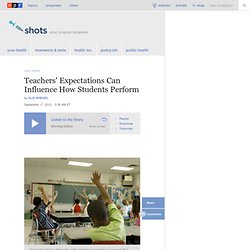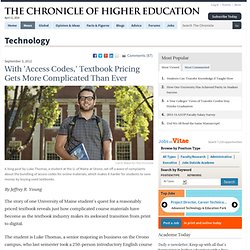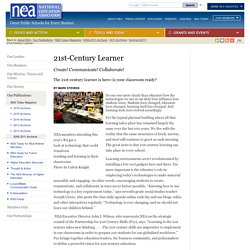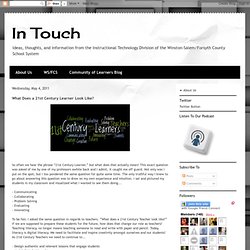

Leaders: Building better workers starts from birth. Teachers' Expectations Can Influence How Students Perform : Shots - Health Blog. Hide captionTeachers interact differently with students expected to succeed.

But they can be trained to change those classroom behaviors. iStockphoto.com Teachers interact differently with students expected to succeed. But they can be trained to change those classroom behaviors. In my Morning Edition story today, I look at expectations — specifically, how teacher expectations can affect the performance of the children they teach. The first psychologist to systematically study this was a Harvard professor named Robert Rosenthal, who in 1964 did a wonderful experiment at an elementary school south of San Francisco. The idea was to figure out what would happen if teachers were told that certain kids in their class were destined to succeed, so Rosenthal took a normal IQ test and dressed it up as a different test. "It was a standardized IQ test, Flanagan's Test of General Ability," he says. After the kids took the test, he then chose from every class several children totally at random.
Is Michigan State Really Better Than Yale? 21 Signs You’re a 21st Century Teacher. Are you a 21st Century Teacher?

Find out! PLUS if you can help me add to my list you may win a special $200 prize. Keep reading to find out how... 1. You require your students to use a variety of sources for their research projects...and they cite blogs, podcasts, and interviews they've conducted via Skype. What Is an Access Code Worth? - Technology. By Jeffrey R.

Young The story of one University of Maine student's quest for a reasonably priced textbook reveals just how complicated course materials have become as the textbook industry makes its awkward transition from print to digital. The student is Luke Thomas, a senior majoring in business on the Orono campus, who last semester took a 250-person introductory English course called "The Nature of Story. " The required textbook was compiled by the professor, John R. Wilson, and published by Cengage. Mr. Mr. "The professor had put a wall between course content, and purchasing his textbook was the only route," Mr. No Simple Approach In the good-old days when print was the only option, students had plenty of free or cheap ways to get required textbooks.
But the latest textbook enhancements, which require individual access codes to get to bonus materials online, threaten to displace all of those alternatives. But this is not a simple case of big-textbook-company-as-villain. Physicists Eagerly Try New Teaching Methods but Often Drop Them, Study Finds - Teaching. 21st-Century Learner. The 21st-century learner is here–is your classroom ready?

By Mark Stevens NEA members attending this year's RA got a look at technology that could transform teaching and learning in their classrooms.Photo by Calvin Knight No one sees more clearly than educators how the technologies we use in our daily lives influence how students learn. Students have changed, educators have changed, learning itself has changed. And learning tools have evolved accordingly. Yet the typical physical building where all that learning takes place has remained largely the same over the last 100 years. Learning environments aren’t revolutionized by installing a few cool gadgets here and there. NEA Executive Director John I. It’s up to educators to find the best ways to integrate technology in fulfilling curriculum requirements, but many useful technologies are available off the shelf, some even for free.
What does this 21st-century classroom look like? Look around and you’re likely to see: Joseph Cicero. What Does a 21st Century Learner Look Like? So often we hear the phrase “21st Century Learner,” but what does that actually mean?

This exact question was asked of me by one of my professors awhile back and I admit, it caught me off guard. Not only was I put on the spot, but I too pondered the same question for quite some time. The only truthful way I knew to go about answering this question was to draw on my own experience and intuition. I sat and pictured my students in my classroom and visualized what I wanted to see them doing...